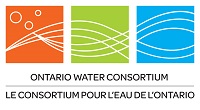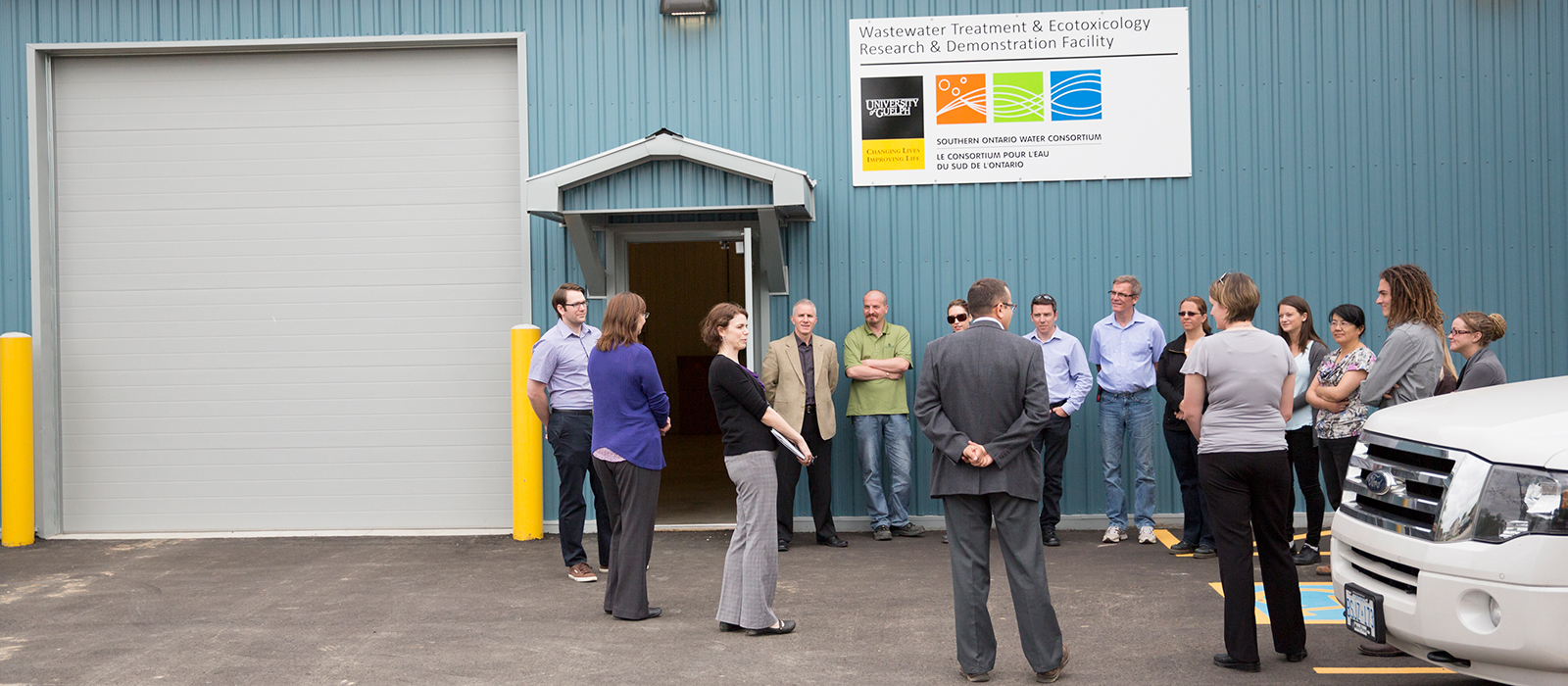From engineers to biologists to social scientists, the University of Guelph (U of G) brings a whole spectrum of expertise in water research to its partnership with the Southern Ontario Water Consortium (SOWC).
U of G is home to more than 100 water experts, many of whom are world leaders in their field, and the research coming out of the school spans a variety of disciplines.
“What sets us apart is the volume and diversity of our water research,” says John Livernois, associate vice-president research services, who also sits on the SOWC board. “We have researchers focused on alternate land use, agriculture and fisheries all the way downstream to urban water uses such as conservation, purification and treatment.”
U of G is among SOWC’s nine post-secondary partner institutions. The collaboration between SOWC and U of G has resulted in research projects related to wastewater, ecotoxicology, analytical techniques and groundwater.
“Not only does U of G’s direct connection to SOWC touch on many of our focus areas, but its researchers also have strong existing collaborative relationships with the researchers at other SOWC partner institutions,” says Brenda Lucas, SOWC executive director. “It’s a university that is far-reaching in terms of research.”
U of G researcher Dr. Ed McBean, who is a Canada Research Chair in Water Supply Security, is the wastewater node leader for SOWC. The engineering professor has worked alongside experts from the World Bank and the United Nations and has consulted on dozens of water supply projects in more than 60 countries.
In his role as Wastewater Node leader, McBean has overseen the creation of the SOWC Guelph Wastewater Facility, a facility that provides industry and academics access to real municipal wastewater for research, development, testing and demonstration of innovations in wastewater management. With this unique facility, researchers are able to establish projects with companies looking to develop new technologies for the marketplace.
“One of the main purposes of the facility is to create a real-world environment for companies to test their latest water treatment technology,” says Livernois. “Companies can come in and have access to real effluent as well as all the equipment needed for measurements, and the results can then be brought back to a state-of-the-art analytical lab here on campus. It’s a fantastic way to develop partnerships between industry and applied water researchers and to further the research and development of technology in the wastewater treatment sector.”

A total of three bays with municipal wastewater flow are available for real-world research, testing and demonstration at the SOWC/Guelph Wastewater Facility
The SOWC facility is also connected to research projects conducted by U of G’s top ecotoxicology expert Dr. Glen Van Der Kraak. The award-winning researcher has served on two World Health Organization panels on Chemical Safety and has frequently acted as an advisor to the U.S. Environmental Protection Agency.
Van Der Kraak is the co-leader of SOWC’s Ecotoxicology Node and has extensive experience in the testing of chemicals and complex effluents for effects on the reproductive physiology of fish and amphibians. With SOWC’s cutting-edge equipment, the U of G integrative biology professor has furthered his research in testing the impacts of wastewater effluent on aquatic life. Specifically he is working on the development of test methods using SOWC’s lab equipment and mobile field trailers to evaluate the effects of effluents, effluent treatment procedures and individual effluent constituents on the reproductive success of fish and amphibians.
“It’s one of the largest bedrock-focused academic university-based groundwater research group in Canada,” says Livernois. In addition to the research that directly involves SOWC’s facilities, U of G’s expertise also expands to other important water issues including groundwater. U of G runs G360, a one-of-a-kind research centre focused on field groundwater research. G360 is the centre of a global collaboration made up of 20 institutions in 11 countries where 15 principal investigators oversee more than 150 academic experts. This world-wide initiative is supported by 25 multinational corporations and industrial sponsors as well as all levels of government contributing more than $8 million to the challenge each year.
For SOWC, this means access to the top experts in this field, says Lucas.
“G360 has a unique facility for research into the behaviour of groundwater in fractured bedrock,” says Lucas. “They have strong interdisciplinary and collaborative groups and the link with SOWC allows us to connect with that expertise.”
G360 is led by U of G researcher Dr. Beth Parker, a world leader in the study of bedrock aquifers and NSERC chair in groundwater contamination in fractured geological media. Parker, along with her team, is carrying out work related to contaminated bedrock sites at 22 field locations across the globe. U of G also has two world-class bedrock aquifer field research facilities of its own that serve as a model system for studying all components of the hydro-geologic cycle.
“Essentially she is trying to understand how contaminants move through the groundwater,” says Livernois. “She wants to map out where it enters, how it spreads and how long it takes to spread. Knowing how a contaminant moves is important in understanding the impact it can have on human exposure.”
Another area of research U of G is excelling at is water issues within First Nation’s communities. Not long ago, the university was awarded $1 million from the RBC Bluewater Project to investigate and find solutions to this problem.
“This is funding that we can allocate to research projects related to monitoring, conserving and protecting water quality on First Nation reserves,” says Livernois. “The instances of water quality issues are generally much higher on First Nations reserves than anywhere else in the country so this research is really important.”
The university’s focus on water research has also resulted in the establishment of a number of undergraduate and post-graduate water-related programs at the school from water resource engineering to environmental science. Having an extensive collection of programs is one of the main reasons why the university is able to have such a broad range of research experts, says Livernois.
“From a research perspective, having these programs gives us the graduate student strength needed to get the research done in the area of water. Our reputable programs attract high quality graduate students and they are the research engine. They help make us one of the top universities in water research today.”
For companies or researchers interested in shaping a project on the SOWC platform, please contact Brenda Lucas, Executive Director or Anna Ziolecki, Manager, Research Partnership Development.


